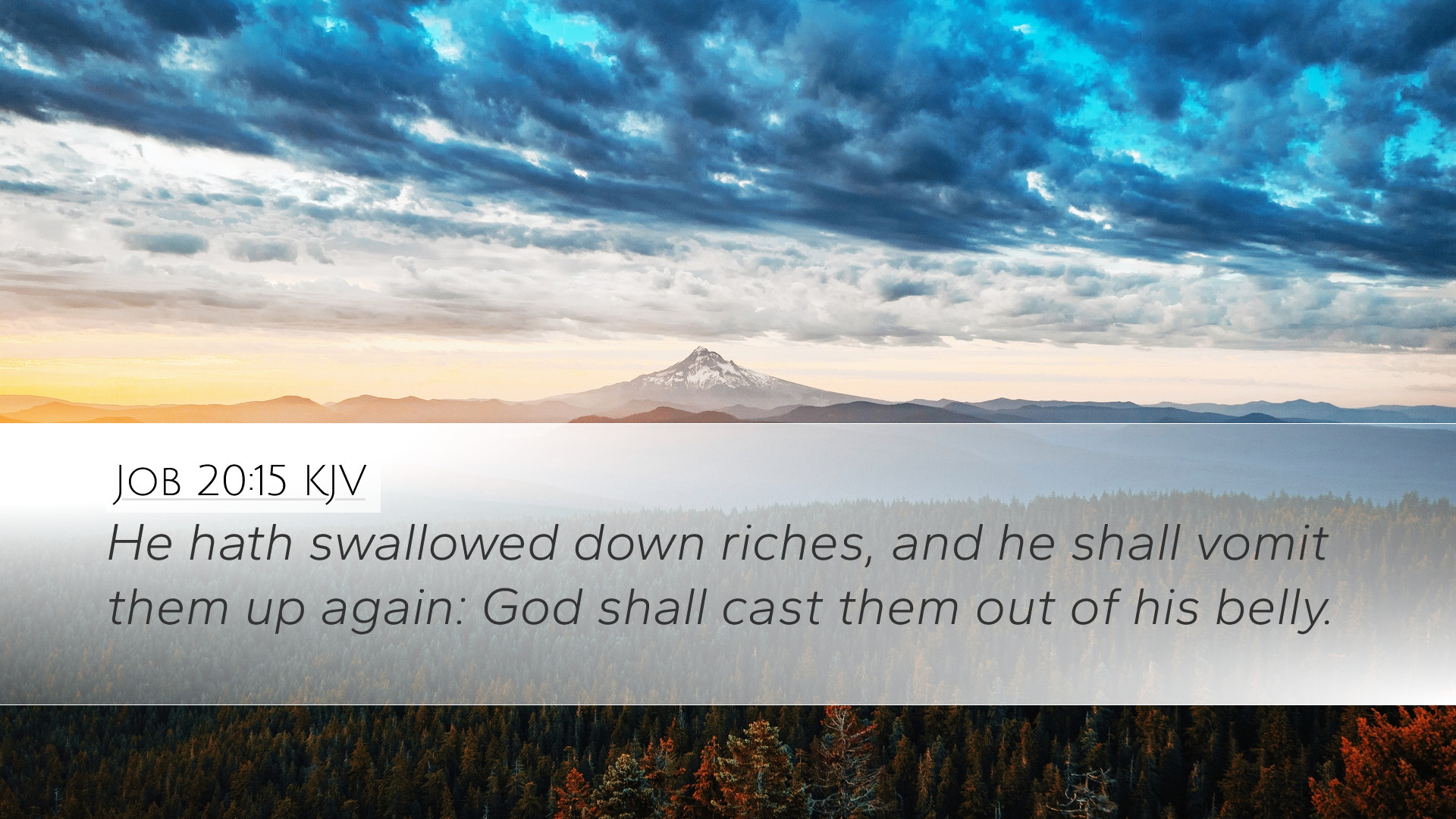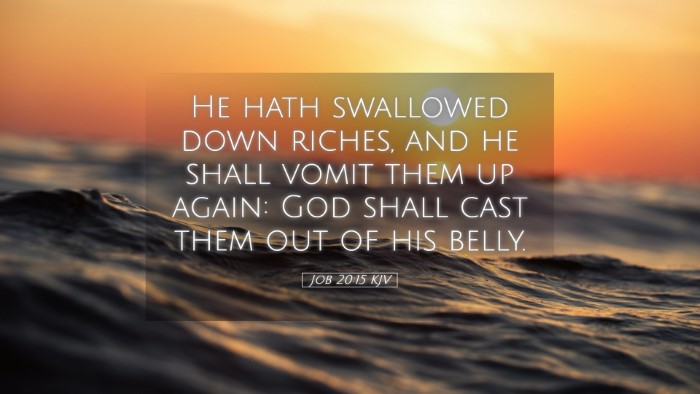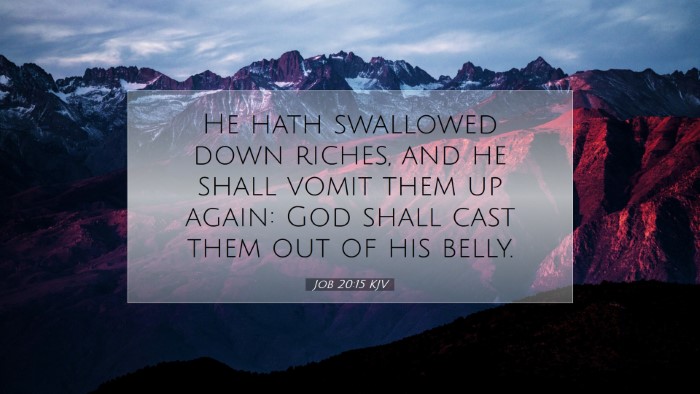Old Testament
Genesis Exodus Leviticus Numbers Deuteronomy Joshua Judges Ruth 1 Samuel 2 Samuel 1 Kings 2 Kings 1 Chronicles 2 Chronicles Ezra Nehemiah Esther Job Psalms Proverbs Ecclesiastes Song of Solomon Isaiah Jeremiah Lamentations Ezekiel Daniel Hosea Joel Amos Obadiah Jonah Micah Nahum Habakkuk Zephaniah Haggai Zechariah MalachiJob 20:15
Job 20:15 KJV
He hath swallowed down riches, and he shall vomit them up again: God shall cast them out of his belly.
Job 20:15 Bible Commentary
Commentary on Job 20:15
Verse Text: "He hath swallowed down riches, and he shall vomit them up again: God shall cast them out of his belly." (Job 20:15)
Overview
This verse appears within the discourse of Zophar, one of Job's friends, who reflects on the fate of the wicked. It carries a powerful message regarding the fleeting nature of worldly wealth and the divine judgment that awaits the unrighteous. The commentary will explore various aspects of this verse stemming from the insights of Matthew Henry, Albert Barnes, and Adam Clarke.
Contextual Analysis
Job 20 is part of Zophar's second speech where he explains the ultimate end of the wicked. The primary theme is that despite the temporary triumph of the wicked, their end results in loss and punishment. In this verse, Zophar illustrates that those who have accumulated wealth through sinful means will ultimately lose it, emphasizing God's justice.
Matthew Henry's Commentary
Matthew Henry notes that this verse illustrates the certainty of divine justice. He explains that the "riches" here symbolize not just material wealth, but anything that a man might greedily consume or hold onto illegitimately. Henry observes the imagery of "vomiting" as a graphic representation of the fact that wealth obtained unjustly cannot be enjoyed; it will leave the sinner empty and in anguish.
Albert Barnes' Commentary
Albert Barnes emphasizes the irony in the notion of the rich wicked man. Barnes explains that while it may seem the wicked prosper, their eventual fate is to lose everything. He points out that God's judgment will force them to "vomit" out what they have consumed, indicating a forced relinquishing of their ill-gotten gains. He further asserts that this serves as a profound warning against greed and immorality.
Adam Clarke's Commentary
Adam Clarke offers insight into the broader implications of this verse. He aligns the act of "swallowing down riches" with the insatiable greed of mankind, who often pursue wealth without regard for God. Clarke also highlights the significance of God's intervention in the life of the wicked, suggesting that ultimately, divine justice prevails. He emphasizes the spiritual interpretation - that true wealth is not material but found in a right relationship with God.
Theological Implications
This verse provides rich theological insights regarding divine justice and the nature of true wealth. Key points include:
- The Nature of God’s Justice: Both Henry and Barnes delineate a God who is just and active in ensuring that the wicked do not escape judgement.
- Temporary vs. Eternal Wealth: Clarke presents a theological truth that contrasts earthly riches with spiritual wealth, highlighting the importance of a faithful relationship with God.
- Divine Sovereignty: The assertion that God "shall cast them out of his belly" reflects God’s control over human affairs, emphasizing His sovereign will in the lives of even the most powerful.
Application for Pastors and Theologians
This verse issues a stern warning that resonates with the heart of pastoral ministry and biblical scholarship. The implications for teaching are profound as they present a stark reality about the moral state of the world and the inherent emptiness of greed. Pastors should emphasize:
- Teaching on Integrity: Highlighting the necessity of integrity in personal and corporate dealings.
- Fostering a Kingdom Perspective: Encouraging congregants to invest in eternal treasures rather than earthly wealth.
- Understanding Divine Justice: Assuring the afflicted and encouraging the faithful about God’s ultimate justice.
Conclusion
Job 20:15 serves as a potent reminder of the temporality of earthly riches. As derived from the rich insights of Henry, Barnes, and Clarke, it compels believers to seek true wealth in Christ rather than in the fleeting pleasures of this world. This verse not only enriches our understanding of the fate awaiting the wicked but also beckons us to store up treasures in heaven by living righteously and justly on earth.


